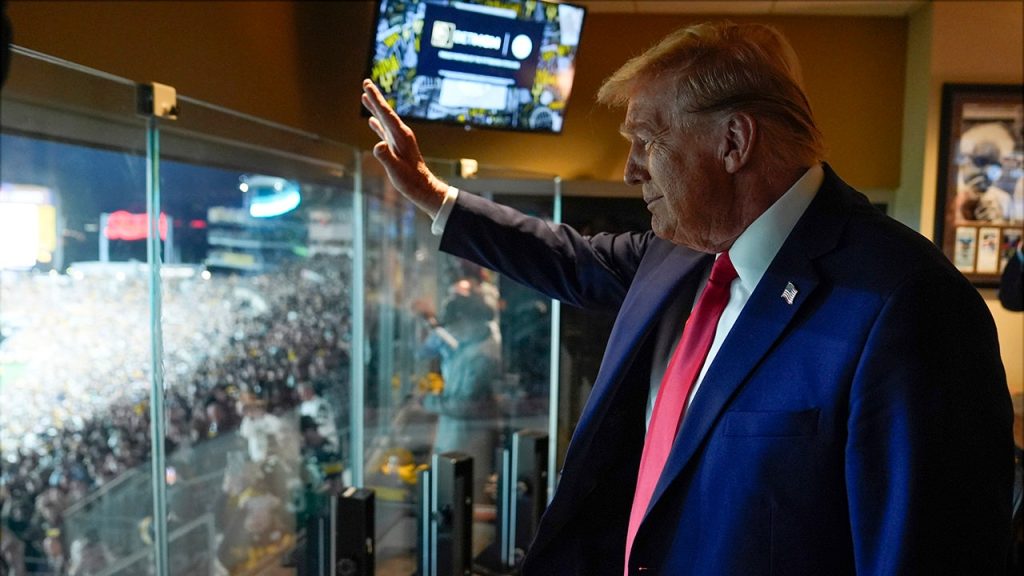The impending attendance of former President Donald Trump at Super Bowl LIX has ignited a firestorm of debate and commentary, injecting a potent dose of political tension into what is traditionally a unifying national event. Trump’s presence marks a departure from the norm, as sitting presidents have typically refrained from attending the Super Bowl, largely due to the immense security challenges and the desire to keep the focus squarely on the game itself. While Trump attended a Steelers game during his first term and has frequently appeared at college football games, his presence at the Super Bowl, given his divisive political legacy, carries a unique weight and significance.
Critics, such as USA Today columnist Mike Freeman, argue that Trump’s attendance threatens to tarnish the Super Bowl’s unifying spirit. Freeman characterized Trump as “the most divisive president of our lifetime,” asserting that his presence could politicize an event that typically transcends political divides and brings Americans together in a shared celebration of sport and spectacle. The Super Bowl, in Freeman’s view, represents a rare moment of unity in a deeply fractured nation, a moment that Trump’s attendance could potentially undermine.
Concerns extend beyond the symbolic implications to practical logistical challenges. Security protocols for a presidential visit are notoriously complex and demanding, and the Super Bowl already presents a significant security undertaking. The convergence of these two factors adds another layer of complexity for law enforcement and security personnel, potentially diverting resources and attention away from the core mission of ensuring the safety and security of all attendees. Furthermore, the sheer magnitude of the presidential presence could overshadow the game itself, shifting the focus away from the athletes and the sporting competition.
Despite the controversy, Trump’s attendance also provides a platform for political engagement. His pre-taped interview with Fox News Channel’s Bret Baier, scheduled to air before the game, offers an opportunity to address a wide audience and potentially shape public discourse. This interview, taking place at Mar-a-Lago, allows Trump to control the narrative and communicate his message directly to millions of viewers, bypassing traditional media filters and potentially influencing public opinion on a range of issues.
Intriguingly, the news of Trump’s Super Bowl appearance coincided with a report about the NFL’s decision to alter its end zone messaging. The league’s “Inspire Change” initiative, aimed at promoting diversity and inclusion, will feature the messages “Choose Love” and “It Takes All of Us” instead of the previous “End Racism” slogan. While the NFL maintains that this change is part of a broader evolution of the campaign, the timing of the announcement, in conjunction with Trump’s planned attendance, has fueled speculation about the league’s motivations and whether the decision reflects a desire to avoid potential political friction.
The confluence of these factors – Trump’s attendance, the NFL’s messaging shift, and the ongoing political polarization in the country – creates a highly charged atmosphere surrounding Super Bowl LIX. What is typically a celebration of athletic achievement and national unity has become a focal point for political commentary and debate. While the game itself remains the central attraction, the surrounding circumstances promise to add an unprecedented layer of complexity and intrigue to this year’s Super Bowl. Whether the event can maintain its traditional unifying spirit amidst these swirling currents remains to be seen. The eyes of the nation will be on New Orleans, not just for the game, but for the broader cultural and political dynamics at play.


